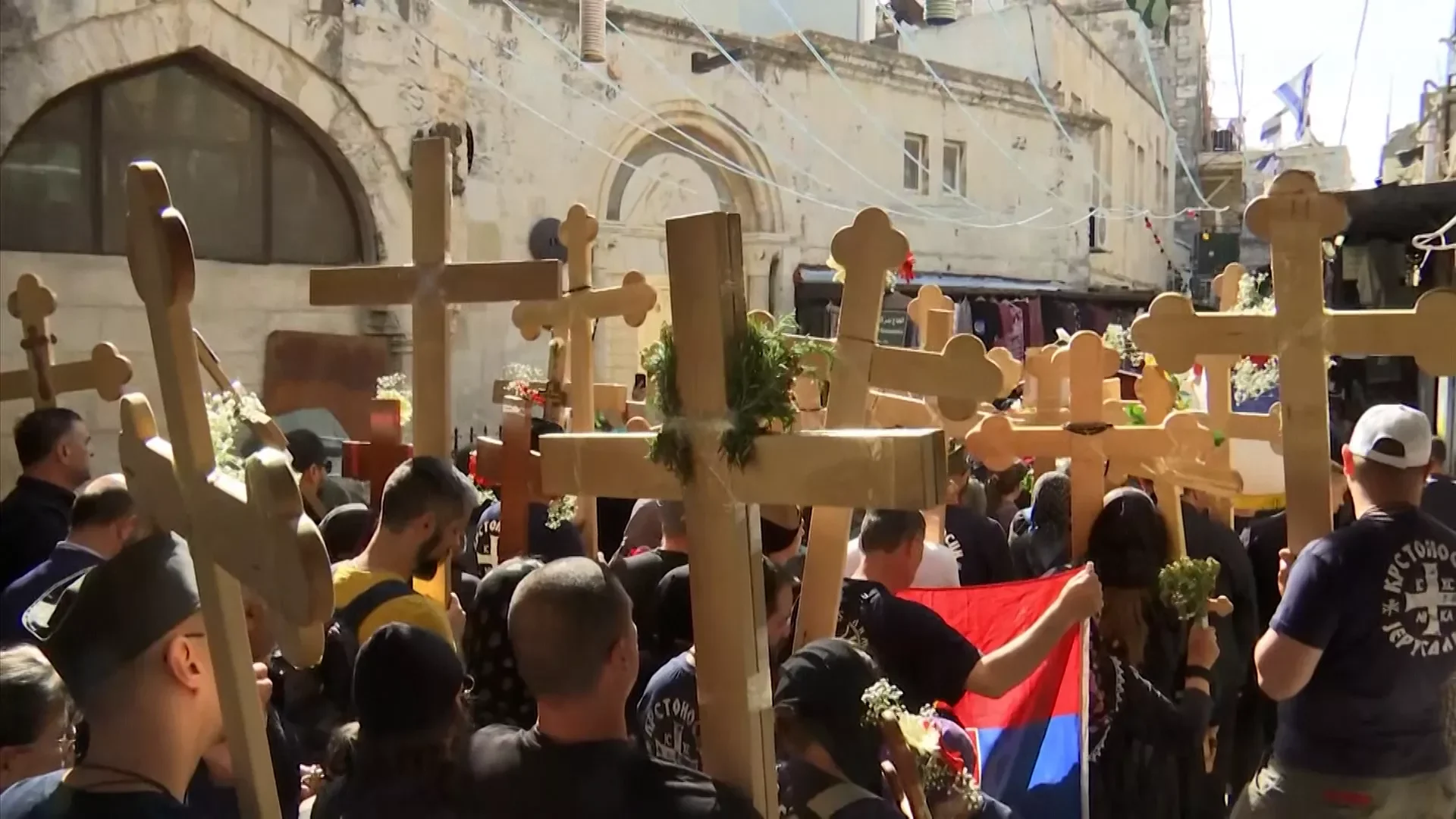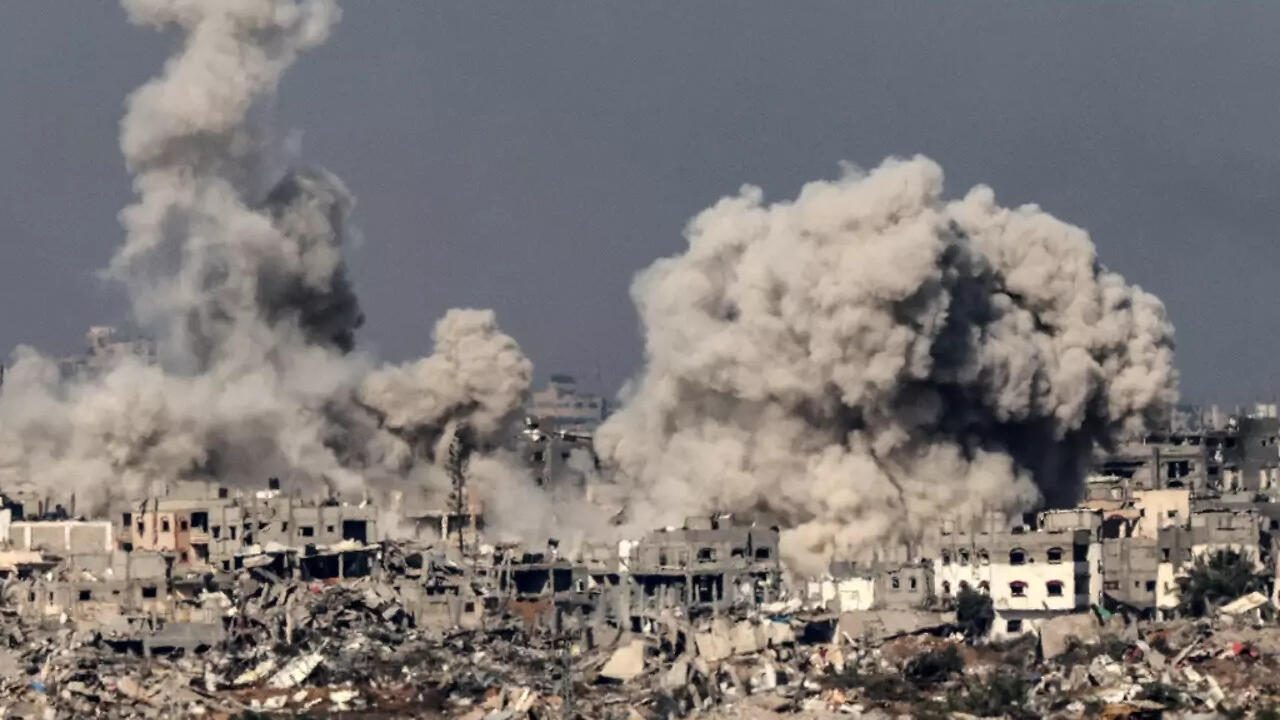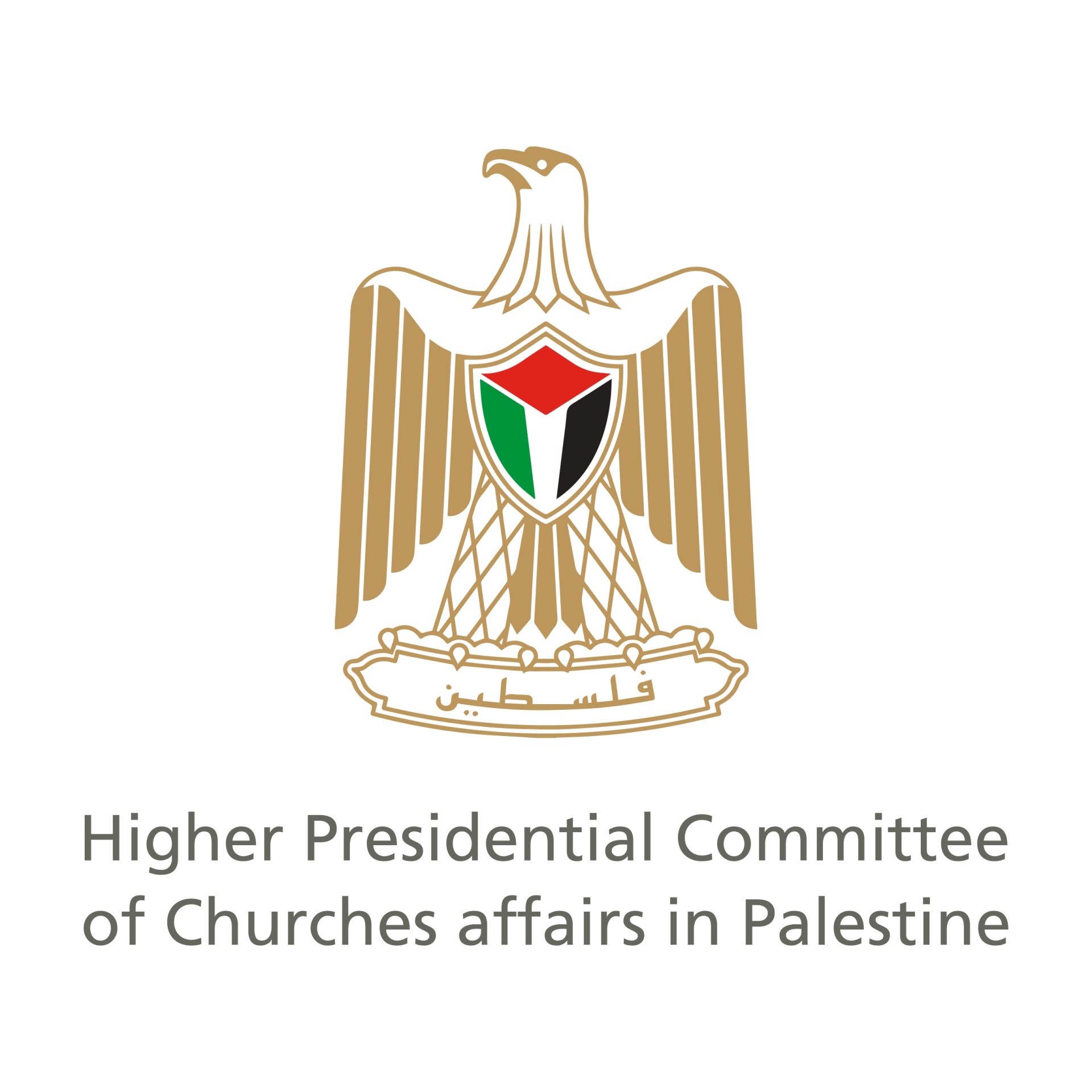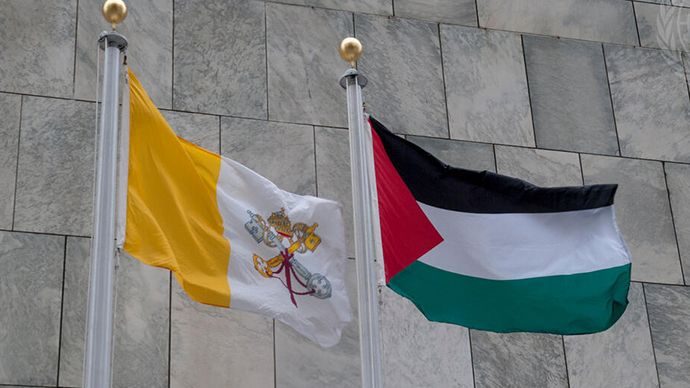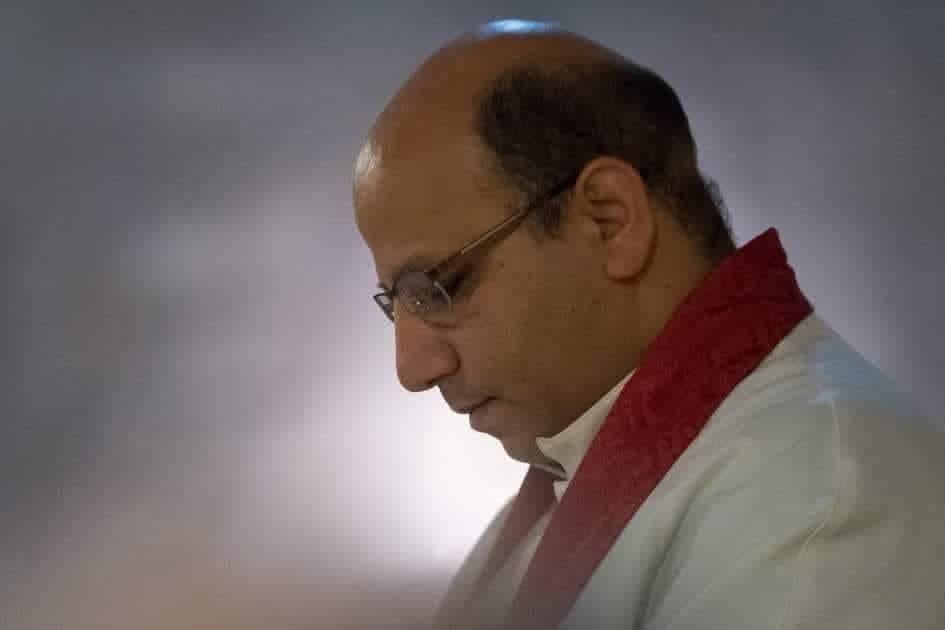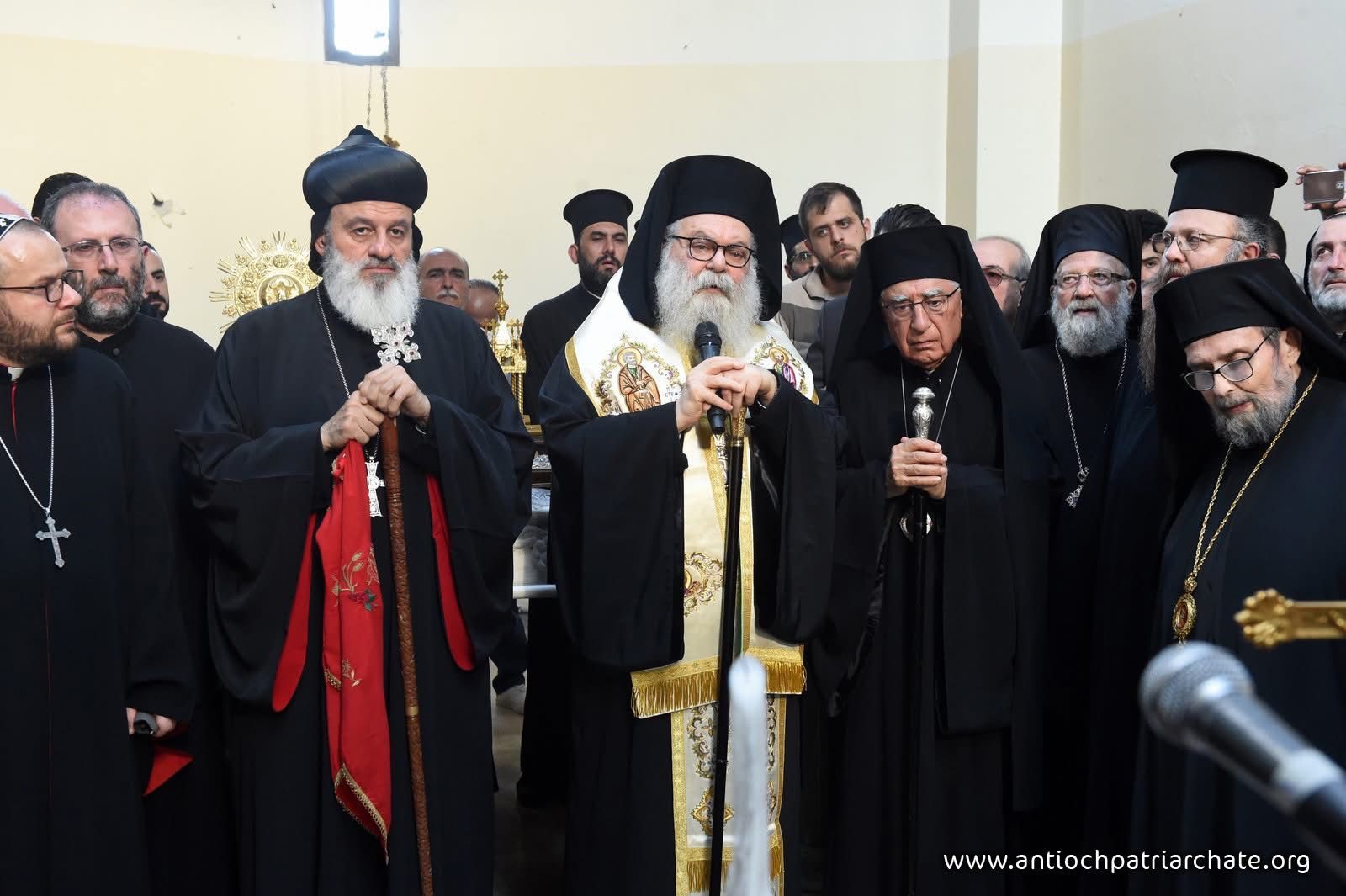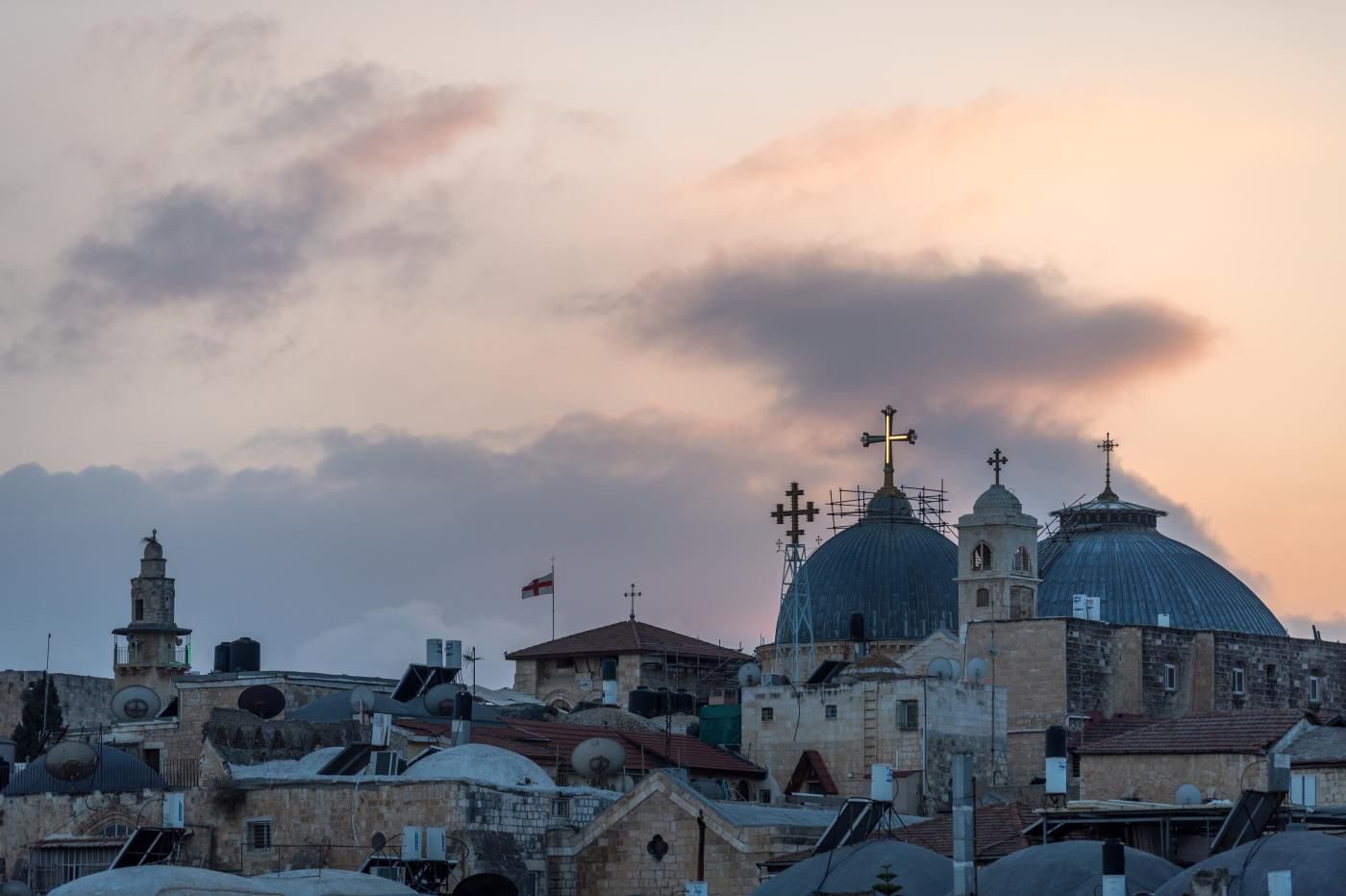11-04-2025
Introduction
As Easter approaches, Palestinian Christians find themselves not surrounded by joy and renewal, but instead in mourning and despair. The unrelenting genocide in Gaza and the ongoing ethnic cleansing of the West Bank have cast a long shadow over Easter. The ongoing Israeli genocide in Gaza, which has resulted in over 50,885 Palestinians killed, 115,875 wounded, a widespread displacement, starvation and the total annihilation of Gaza, as well as the collapse of all its vital sector, has devastated all aspects of Palestinian life
Palestinian Christians are subjected to escalating restrictions on their freedom of worship. These measures have intensified in the context of Israel’s broader colonial policies and are especially targeted during Christian religious observances such as Easter.
Israeli Intensified Restrictions
For Palestinian Christians, Easter is a deeply spiritual occasion marked by visits to Jerusalem, particularly to the Church of the Holy Sepulchre. However, due to Israel’s ongoing military occupation and colonial policies, access to this holy site is increasingly difficult. While foreign Christian pilgrims and tourists enjoy unimpeded access to Jerusalem, Palestinians face “administrative” hurdles, violence, and humiliation in their efforts to reach their holy sites in their own city to practice their faith.
Jerusalem and the West Bank: Denial of Access, Restrictions and Aggression
Palestinians living in the West Bank, including residents of Bethlehem, just a 20-minute drive from Jerusalem, are forced to obtain Israeli-issued permits to enter Jerusalem. These permits are frequently denied, arbitrarily revoked, or granted under restrictive conditions. When approved, they are usually temporary and offer limited access. In the aftermath of Israel’s war on Gaza, restrictions have only intensified.
For decades, Israel has pursued a systematic policy to isolate Jerusalem from its Palestinian surrounding, altering its geography. and demography in an effort to erase its Palestinian identity and character. This agenda aims to establish an Israeli-Jewish majority, through a range of colonial strategies: the construction of the Annexation Wall, the erection of military checkpoints, the proliferation of settlements and related infrastructure, and “administrative” barriers like the permit regime.
During Holy Week, Palestinian Christians face targeted campaign of harassment and restrictions as they attempt to access their holy sites in Jerusalem.
The Israeli occupation authorities routinely impose repressive measures, including severe limitations on the number of Christian worshippers allowed to enter the Old City, militarizing its entrances with barricades, and even using physical violence against celebrants. Easter celebrations are systematically disrupted, with worshippers subjected to intimidation, delays, and attacks by Israeli police. Many are blocked entirely from attending under the pretext of “security”.
In 2023, for instance access to the Church of the Holy Sepulchre was limited only 1,800 people with another 1,200 outside, in a stark contrast to the usual 10,000 celebrants that typically come during Easter. These restrictions reflect a broader Israeli strategy aimed at reshaping the city’s demographic and spiritual landscape by limiting Palestinian presence and undermining their religious rights.
Since October 7th, the number of Israeli checkpoints in all its forms has surged dramatically, further fragmenting the West Bank and severing connections between Palestinian towns and cities. Currently, 849 Israeli movement obstacles are placed throughout the West Bank, compounding daily hardships for Palestinians, including Christians, and severely restricting their freedom of movement.
Israel’s control extends even to Christian pilgrims from abroad. It maintains total authority over entry into Palestine, managing all access points and visa approvals. Visitors deemed politically undesirable can be denied entry or expelled upon arrival, often without explanation or due process.
Meanwhile, attacks by extremist Israeli settlers against Christian civilians, clergy, nuns, and churches have surged. The Religious Freedom Data Center recorded 44 acts of harassment targeting Christians in 41 separate incidents between January and March 2025 alone. In 2024, the Rossing Center’s annual report documented 111 attacks or acts of violence against Christians. Alarmingly, 48% of Christian youth under 30 reported considering emigration due to worsening conditions. These findings come from Israeli sources, underscoring the severity and credibility of the crisis.
Gaza’s Christians
It is crucial to acknowledge that while Palestinian Christians in Jerusalem and the West Bank face growing restrictions, the Christian community in Gaza stands on the brink of extinction as a result of Israel’s genocidal campaign.
Even before October 7th, Gaza’s Christian population was subjected to severe limitations. In 2023, over 700 permits that had been granted to Christians in Gaza to visit Jerusalem for Easter were suddenly cancelled by Israeli occupation authorities. These sporadic permissions were the only lifeline for Gaza’s Christians to access their holy sites. Since the beginning of the war on Gaza, however, all permits have been revoked entirely, cutting off the community from participating in Easter celebrations and severing their connection to sacred traditions in Jerusalem.
Today, Gaza’s Christian population, once estimated at around 1,000, has dwindled to just 624 people. They are trapped under siege, living under the constant threat of bombardment, displacement, and death. Churches that once served as spiritual sanctuaries, such as St. Porphyrios Orthodox Church, Gaza Baptist Church, and the Catholic Holy Family Church, have been transformed into shelters for the displaced, and places of mourning rather than celebration. Easter in Gaza is now marked not by joy or pilgrimage, but by grief, destruction, and the terrifying reality of ongoing genocide.
Impact on Palestinian Christians and Their Communities
The restrictions imposed by Israel not only violate the religious freedom of Palestinian Christians, but also fracture the spiritual and cultural lifeblood of their communities. The inability to take part in sacred traditions, such as walking the Via Dolorosa or joining the Palm Sunday processions in Jerusalem, inflicts profound emotional and spiritual pain. These rituals are not mere observances; they are deeply rooted expressions of faith, identity, and historical continuity tied to the very birthplace of Christianity.
This suppression of religious practice is further intensified by the broader political and humanitarian crisis engulfing Palestine. In Gaza, Christians are cut off entirely from Jerusalem and the rest of the world, enduring the devastating impacts of an ongoing genocide. In the West Bank, Christian communities live under the shadow of escalating violence and a relentless campaign of ethnic cleansing.
At a time when the Palestinian Christian population is already in decline, these conditions are driving more families to emigrate in search of safety, dignity, and freedom. As a result, the very survival of this ancient community, integral to the cultural and religious heritage of the Holy Land, is increasingly under threat.
Economic and Social Impact
The Israeli-imposed restrictions also carry devastating economic consequences, particularly for Palestinian Christians in cities like Jerusalem and Bethlehem, where livelihoods are closely tied to religious tourism. Local businesses, including hotels, souvenir shops, and artisan craft stores, depend heavily on the influx of pilgrims during religious holidays. As access is increasingly curtailed, these communities are suffering immense financial losses.
Beyond religious tourism, Israel’s policies actively undermine the broader Palestinian economy. In addition to restrictions on movement and access, the expansion of illegal settlements, land confiscations, demolitions, and escalating settler violence, throughout 2023 and 2024, have displaced communities and disrupted economic activity across the West Bank, including East Jerusalem. Commerce, transportation, and the tourism sector have all suffered sharp downturns. In East Jerusalem’s Old City alone, 80% of businesses have either partially or completely shut down.
According to the Palestinian Ministry of Tourism and Antiquities, the West Bank and East Jerusalem welcomed approximately 2.5 million visitors between January and early October 2023, an average of 278,000 per month. Since then, this number has plummeted to less than 1% of that figure. The ongoing war has deepened the crisis, with Palestinian cities collectively losing an estimated $2.5 million per day, 60% of which affects Bethlehem.
Violation of International Law
Israel’s ongoing restrictions on Palestinian Christians’ access to religious sites and freedom of worship constitute clear violations of international law, including the Universal Declaration of Human Rights and the International Covenant on Civil and Political Rights. Both guarantee the right to freedom of religion and prohibit discrimination based on belief.
As the occupying power, Israel is obligated under international humanitarian law to ensure the protection of religious rights. Instead, it systematically uses access to holy sites as a tool of control and collective punishment, contravening Articles 27–34 and 47–78 of the Fourth Geneva Convention. Rule 104 of the Geneva Conventions further requires respect for religious practices, access to places of worship, and protection from persecution based on belief—standards Israel repeatedly fails to meet.
Moreover, Israel’s annexation of East Jerusalem and its policies aimed at altering the city’s identity and demography are considered illegal under international law. By denying Palestinian Christians access to Jerusalem, especially during religious holidays, Israel is violating their fundamental right to worship, undermining both international humanitarian and human rights law.

